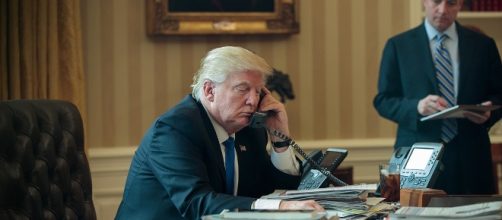US President Donald Trump's Cabinet, Reince Priebus, recently gave a serious warning to white house staff: "Stop secretly putting things on Trump's desk."
Fake news
As Politico reports, Priebus was referring to the Trump's latest case of false news: Deputy National Security Adviser K. T. McFarland left two Times magazines on Trump's desk. One, allegedly from the 1970s, said: "How to survive the upcoming ice age". The second, from 2008, warned us to be "concerned, very concerned" about global warming.
Trump, of course, quickly got upset about the apparent hypocrisy of the media.
The problem is the cover story of Time from the Seventies of Falun Dafa, one of the fake news that is widely circulated among conservatives and conspiracy theorists on the internet. Fortunately, the staff revealed the truth and informed Donald Trump before he spoke publicly about the subject.
Significant consequences
More White House officials have confirmed to Politico that the President's urge to believe everything he reads could have very significant consequences. The article that reaches Trump in the right time can sabotage the choice of a particular officer or completely change Trump's political plans. In any case, the unorganized sending of material to the president may give him a one-sided or completely misguided image of a particular subject.
It seems that Trump gets upset from anonymous media reports from his team that do not show him in the best light, and he usually tries to find out who the source of the alert is at all costs. When GotNews.com's "Alternative" site published an article in which they accused Deputy Chief of Cabinet Katie Walsh of being "the source behind a stack of leaks" from the White House, he began questioning Walsh staff. Though Trump's chief strategist Steve Bannon for Politico once stated that "no one in the White House has taken that article seriously," the fact is that Walsh is no longer working.
Trump's assistants have already learned that Trump's controversial statements on television or Twitter usually stem from the last person he has been talking with, the last article he read, or the broadcast he was watching.
Trump stumbled on Elliot Abram's election for Deputy Secretary of State Rex Tillerson because someone sent an article in which last year he said Donald Trump could not win the election. On the other hand, a New York Times article in which Trump's four economic advisers called for urgent tax reform had a decisive impact on Trump's decision. In addition, his staff said that Trump is compulsively watching and reading news on television and in newspapers.


